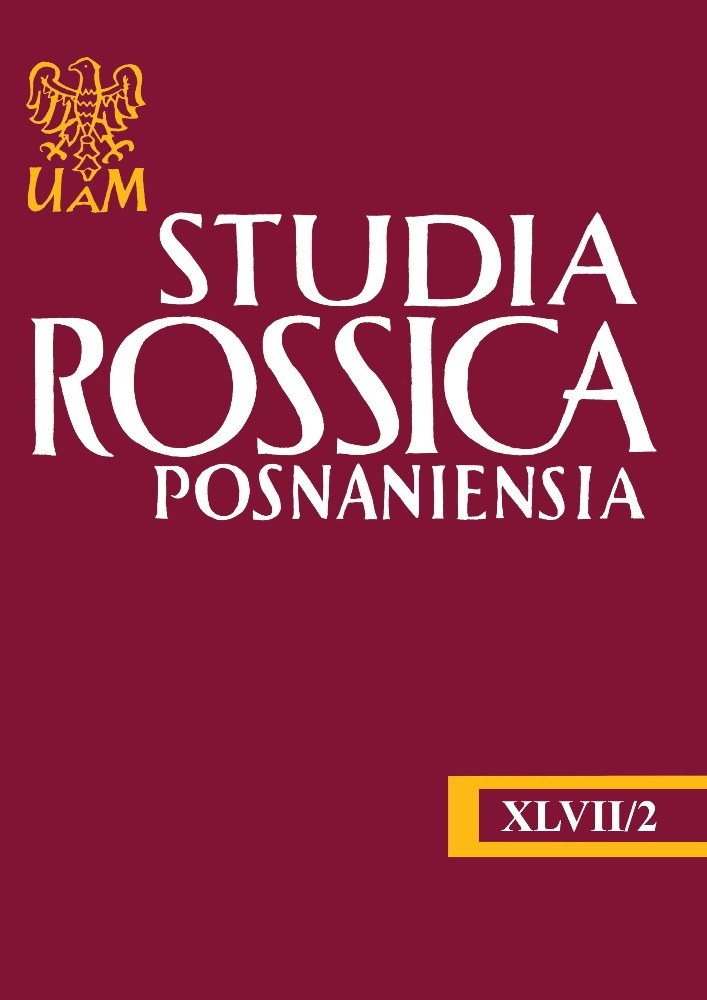Abstract
The article is the result of a search for effective tools that can support the process of enriching the individual lexicon of students. The possibilities of involving students in this process through the use of selected ICT tools were indicated. It was pointed out that the use of various platforms and mobile applications in the development and control of lexical skills is conducive to individualization of teaching, and its inclusion in the learning process requires an analysis for usefulness in achieving expected learning outcomes. Online learning platforms such as WordWall and LearningApps, that allow for the design of interactive exercises facilitating the learning of foreign languages, and in particular the improving of foreign vocabulary, were analyzed. Their use in the course of independent learning enables the enrichment of vocabulary in accordance with the interests and individual communication needs of students. The inclusion of these tools in the didactic process may positively affect the motivation to learn, and their systematic use, both in the classroom and during individual work, it also allows the acceleration of the memorization of the vocabulary of a foreign language.
References
Azimov, Èlhan, Elena Vilʹšineckaâ. „Materialy Interneta na urokah anglijskogo âzyka”. Inostrannye âzyki v škole, 1, 2001, s. 54–58.
Bim, Inessa. Metodika obučeniâ inostrannym âzykam kak nauka i problemy školʹnogo učebnika. Moskva, Russkij âzyk, 1977.
Bykov, Ilʹâ, Olʹga Filatova. Tehnologii Web 2.0 i svâzi s obŝestvennostʹŭ: Smena paradigmy ili dopolnitelʹnye vozmožnosti?. Web. 08.09.2021. https://cyberleninka.ru/article/n/tehnologii-veb-2-0-i-svyazi-s-obschestvennostyu-smena-paradigmy-ili-dopolnitelnye-vozmozhnosti/viewer.
Kruteckij, Vadim. Psihologiâ: učebnik dlâ učaŝihsâ ped. učiliŝ. Moskva, Prosveŝenie, 1980.
Spitzer, Manfred. Jak uczy się mózg. Przeł. Małgorzata Guzowska-Dąbrowska. Warszawa, Wydawnictwo Naukowe PWN, 2007.
Sysoev, Pavel. Informacionnye i kommunikacionnye tehnologii v lingvističeskom obrazovanii: učebnoe posobie. Moskva, Librokom, 2013.
Szewczuk, Włodzimierz. Podstawy psychologii: podręcznik akademicki. Warszawa, Wyższa Szkoła Społeczno-Ekonomiczna, 2000.
Wejn, Aleksander, Berta Kamieniecka. Tajemnice pamięci. Przeł. Józef Dancygier. Warszawa, Ludowa Spółdzielnia Wydawnicza, 1976.
Zalevskaâ, Aleksandra. Slovo v leksikone čeloveka. Voronež, Izdatel’stvo Voronežskogo gosudarstvennogo universiteta, 1990.
http://didaktor.ru/Wordwall-zamechatelnaya-kollekciya-shablonov-didakticheskix-igr/.
https://study-english.info/ict-web2.php.
https://teachbase.ru/obuchenie/kak-sozdavat-zadaniya-v-servise-learningapps/.
https://www.womczest.edu.pl/new/wp-content/uploads/2020/05/Tworzenie-wirtualnych-ćwiczeń w-aplikacji-Wordwall”.pdf.
License
THE ARTICLES ARE PUBLISHED UNDER THE CREATIVE COMMONS LICENCE:
Attribution-NonCommercial-ShareAlike 4.0 International License.
Authors of texts accepted for publication in “Studia Rossica Posnaniensia” are required to complete, sign and return to the editor's office the Agreement for granting a royalty-free license to works with a commitment to grant a Creative Commons sub-license.
Under the agreement, the authors of texts published in “Studia Rossica Posnaniensia” grant the Adam Mickiewicz University in Poznań a non-exclusive, royalty-free license and authorize the use of Attribution-NonCommercial-ShareAlike 4.0 International (CC BY-NC-SA 4.0).
The authors retain the right to continue the free disposal of the work.
Internet users are entitled to use works published in “Studia Rossica Posnaniensia” since 2016, for non-commercial purposes only, under the following conditions: https://creativecommons.org/licenses/by-nc-sa/4.0/
Adam Mickiewicz University in Poznań retains the right to magazines as a whole (layout, graphic form, title, cover design, logo etc.).

